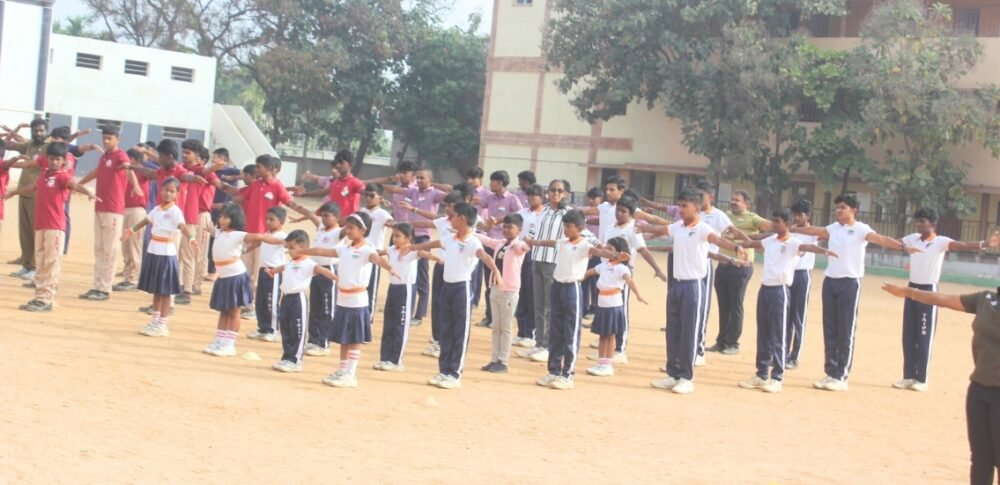Student Productivity Tips are essential for creating a daily routine that helps school students manage their time well and achieve their goals. In this blog, we will discuss a simple daily routine that can help students stay organized, work steadily, and enjoy their school life without stress.
Start Your Day Right
A good day starts with a strong morning routine. Begin your day with a consistent wake-up time. When you wake up at the same time every day, your body adjusts to the routine and you feel more refreshed. Begin with some light stretching or a short walk to clear your mind. Avoid checking your phone or social media right away; instead, use the first moments of the day to focus on yourself.
A healthy breakfast is also a must. Choose foods that give you energy, such as whole grains, fruits, and a source of protein like eggs or yogurt. A balanced breakfast helps keep you alert during your classes and study sessions.
Set Clear Goals for the Day
Before you start studying, spend a few minutes planning your day. Write down the tasks you need to complete, including homework, study time, and breaks. A simple list or a planner can help you keep track of your daily goals. Divide your tasks into smaller steps to make them easier to manage. For example, if you have a large assignment, break it into parts like research, writing, and proofreading.
Setting clear goals helps you focus and ensures that you do not miss any important tasks. It also gives you a sense of accomplishment as you check off each completed item.
Organize Your Study Time
Create a study schedule that fits with your school timetable and personal habits. Dedicate specific times of the day for studying. For example, you might choose to study for an hour in the morning before school and another hour in the afternoon after returning home. Use a timer if needed to help you stick to your study periods.
While studying, keep your work area neat and free from distractions. Turn off notifications on your devices and set up your study space in a quiet corner of your home. A clean and organized area can make it easier to concentrate and get through your tasks faster.
Take Regular Breaks
Long periods of continuous study can lead to tiredness. It is important to take short breaks during your study sessions. You might study for 30 minutes and then take a 5- or 10-minute break. During these breaks, stand up, stretch, or take a short walk. These small pauses can refresh your mind and help you work better when you return to studying.
Breaks also provide a chance to relax your eyes and mind, reducing the strain from long hours of reading and screen time. Keeping these intervals regular makes it easier to maintain your concentration over a longer period.
Use Simple Study Methods
There are several simple methods to help you learn better. Try to rewrite your notes in your own words, which can help you understand the material more deeply. You can also make flashcards with important facts or terms. Reviewing these flashcards regularly reinforces what you have learned and makes it easier to remember for exams.
Another effective technique is to teach the material to someone else. When you explain what you have learned to a friend or family member, it reinforces your own understanding. You can also work in small groups where each person shares their understanding of a topic. This method not only helps you learn but also makes studying more enjoyable.
Balance Schoolwork with Other Activities

School is not just about studying; it is also about growing in different areas of life. Make sure to set aside time for hobbies, sports, or other interests that you enjoy. Whether it is playing an instrument, drawing, or playing a sport, these activities help reduce stress and balance your daily routine.
Extracurricular activities allow you to relax and interact with friends, which can improve your mood and overall well-being. They also give you a break from the regular study routine, which can make your study time more effective.
Maintain a Healthy Lifestyle

A daily routine that maximizes productivity also includes taking care of your health. In addition to a good breakfast, keep your meals balanced throughout the day. Choose foods that give steady energy, such as fruits, vegetables, whole grains, and lean proteins. Stay away from too many sweets or junk food, as they can lead to energy crashes.
It is important to drink enough water. Keeping a water bottle nearby during classes and study sessions can remind you to stay hydrated. A hydrated body works better, and you will feel more alert during your school day.
Regular physical activity is also important. Even a short walk or some light exercise can help clear your mind and reduce stress. Try to fit in some physical activity into your daily schedule, whether it is a quick morning exercise, a sports session after school, or even some simple stretches during study breaks.
Organize Your Homework and Projects
Managing homework and projects is an important part of a school student’s routine. At the end of each school day, review the assignments and plan when you will complete them. Use a calendar or planner to note deadlines and upcoming projects. This way, you can avoid last-minute stress and ensure that you have enough time to complete your work properly.
If you find that a project or assignment is too big, break it down into smaller steps. Work on one part at a time and set small goals to finish each part. This makes large tasks seem more manageable and reduces feelings of being overwhelmed.
Limit Screen Time and Stay Focused
While technology can be helpful for schoolwork, it can also be a distraction. Set limits on how much time you spend on social media or playing games, especially during study time. Try to keep your phone in another room when you are working. This simple step can help you concentrate better and use your time wisely.
If you need to use a computer or tablet for studying, make sure that you only have the necessary programs or websites open. Close any extra tabs or apps that might distract you from your work. Keeping a clear focus on your tasks will improve your productivity.
End Your Day with a Wind-Down Routine
A well-planned day ends with a proper wind-down routine. After finishing your schoolwork and dinner, spend some time relaxing. This might include reading a book, talking with family, or listening to soft music. Avoid heavy meals or too much screen time before bed.
Going to bed at a regular time is important. A good night’s sleep helps your mind and body rest, so you are ready for a new day. A consistent sleep schedule can also improve your concentration and overall performance at school.
Reflect on Your Day
Before you go to sleep, take a few minutes to think about your day. Ask yourself what went well and what could be improved. Reflecting on your daily routine helps you understand which methods are working and where you might need to make changes. Writing down your thoughts in a journal can be a good habit to develop.
This reflection time gives you the chance to plan better for the next day and set new goals. It also provides a sense of accomplishment when you see the progress you have made over time.
A daily routine built on simple and practical habits can make a big difference in a student’s productivity. From starting the day with a good breakfast and clear goals to organizing study sessions, taking breaks, and ending the day with proper rest, every step counts. By following these student productivity tips, school students can manage their time better, reduce stress, and improve their performance in school.
This routine is not set in stone—feel free to adjust it to fit your own needs. The key is to keep things simple and consistent. With a little planning and regular practice, you can create a routine that works well for you. Remember, success comes with small steps each day. With this daily routine, you can improve your productivity, keep a balanced life, and feel more confident in your school work.



